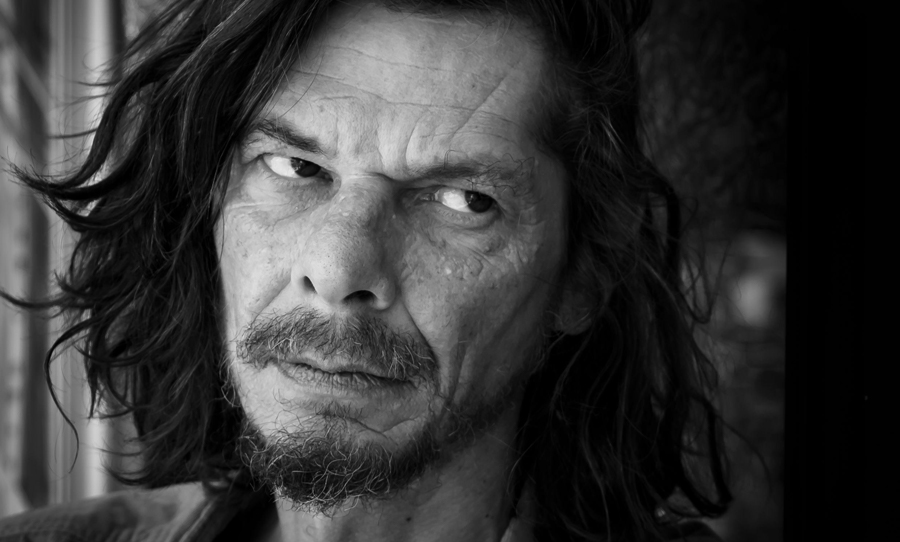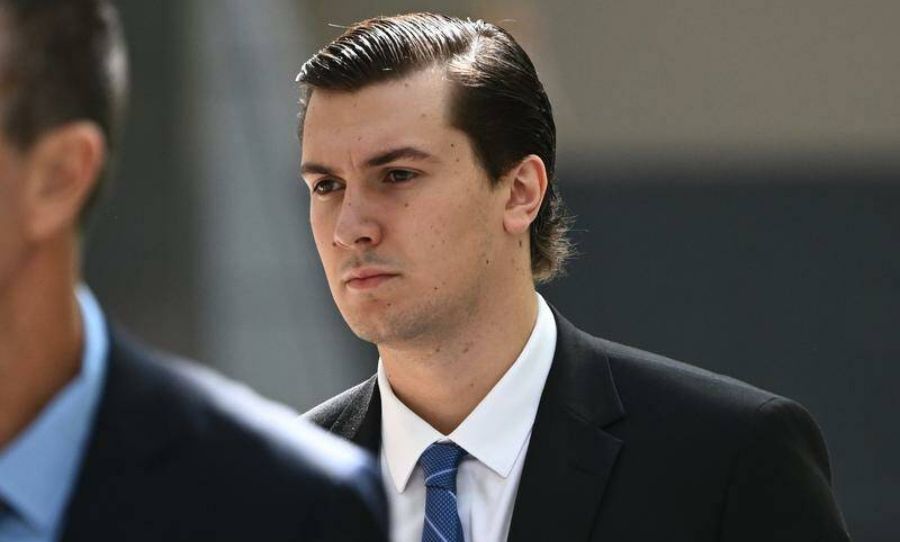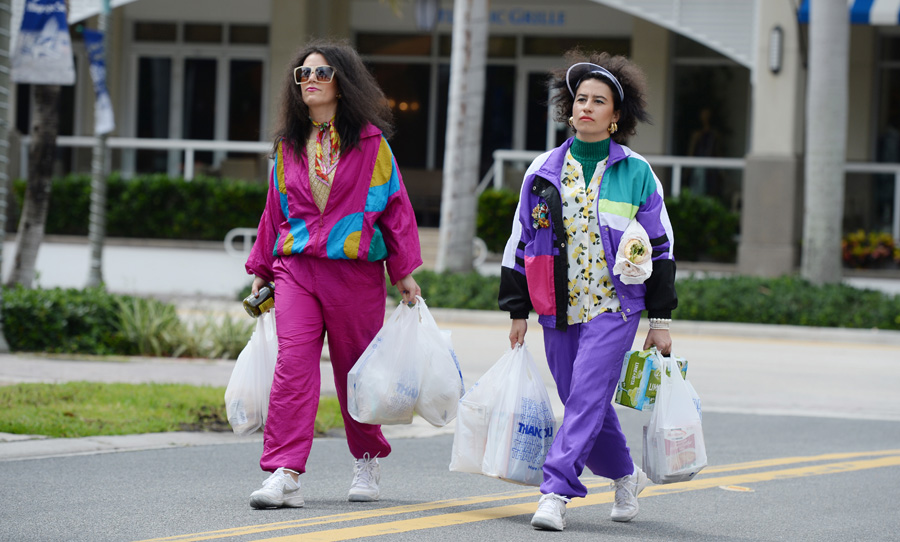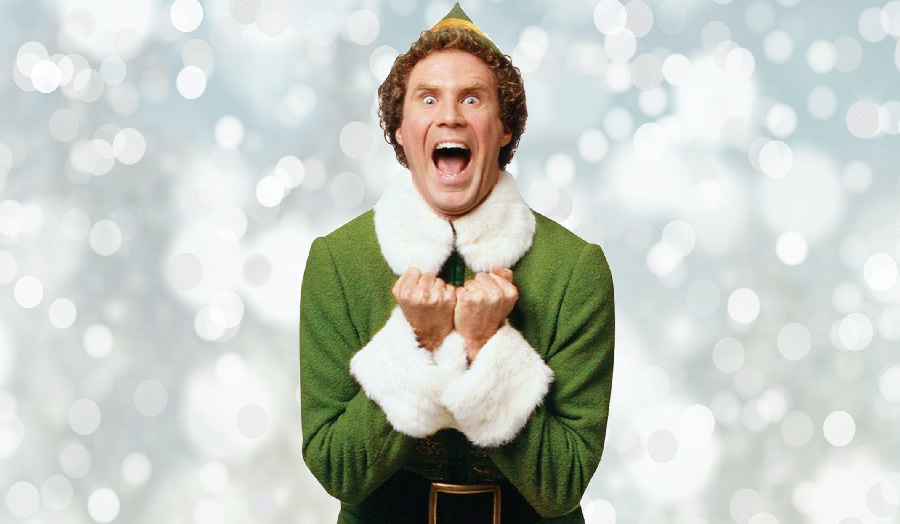Barry Jones is the storyteller that music needed. Possessing an understanding and honesty that most musicians can only dream of, he is a legend in every sense of the word.
Barry Jones is one of the most interesting people to talk to. A conversation with him is never small talk and you will always be left feeling richer for it.
Fresh off the release of his enigmatic new EP, True Present, we caught up with the Tasmanian local to learn a bit more about his art.
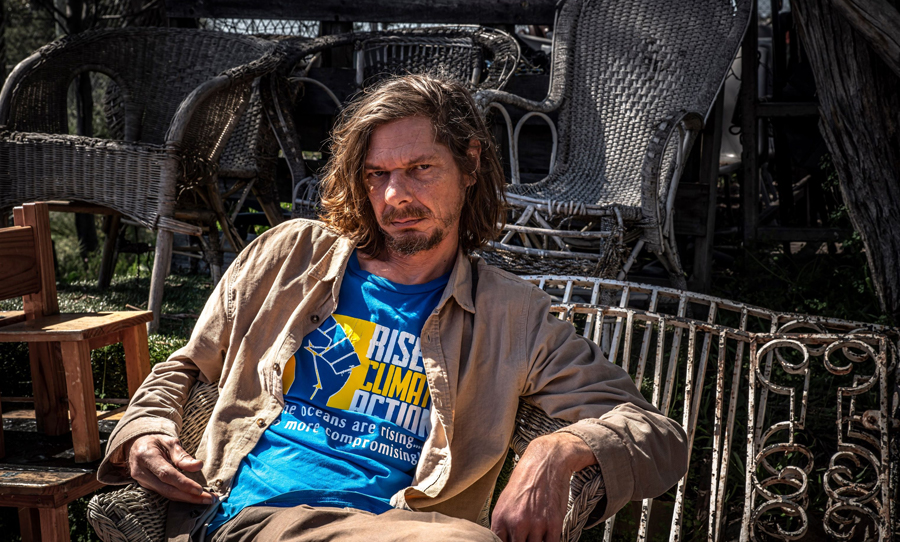
HAPPY: Hey Barry, thank you for your time today. Where do you find yourself in this present moment?
BARRY: A bit all over the place in truth. There have been a lot of shifts in my life this year, most of them unplanned. Unwelcome, but clearly necessary. In musical terms, it has been quite fruitful, being that I tend to dwell in darker hemispheres. But on a personal note, it has really pushed me. I find myself very much on the outside of things. Sometimes, that can be quite scary to face. Sometimes, I simply choose not to face it or at least try.
HAPPY: I was lucky enough to have quite an interesting first chat with you on the phone. Have you always found it easy to be open and quite raw with people?
BARRY: Not always, but I made that call when I was a young kid. Sometimes it has got me in strife, with the police and likes, it also doesn’t make me the best company, as I am not afraid to have an opinion on other people’s behaviours, being as I am a pretty harsh judge on myself. I also would add that I have had the honour (and vicarious trauma) of listening to thousands bear their soul to me as a social worker/counsellor. I believe it is rare people are given this space without the fear of being judged. I mean, you will get judged whether you are honest or not, so fuck that. Being raw is really what my creativity is about. That is where I go to place and mix all these feelings up into words and sound. It is also something I hear people crying out for. It fascinates me concepts like the “white lie.” That says a lot, really, when you break it down. Really, we are talking about privileges. I think honesty, raw honesty, is all we have sometimes standing in the face of oppression (lies). It is the one thing that cannot be taken away. I am not saying it is easy or even virtuous, I just believe it is a necessary part of being human.
HAPPY: A huge congratulations to you on the release of your EP True Present. Can you indulge us a little on where this sparked from?
BARRY: I have been making music pretty much non-stop since March this year. It is funny, I never said I would be a property owner, but I got some money from a relationship settlement with which I was able to start purchasing some music gear. I guess, like a lot of folks, I had lived pay to pay. Even when I was getting like 1800pfn as a social worker, after all the bills, drugs, and alcohol, I would be broke. It was quite the cycle. I think True Present was my first real ‘serious’ attempt at trying to make what I guess I would call a ‘proper’ EP. Most of this was done in this incredible tiny house. It was like a dreamscape; no people, just trees, stars, and birds. I went for a massive walk on the third day, where mountain view stems from. I nearly died maybe a couple of times!
HAPPY: What does the creative process look like on a typical day in Iutruwita? Does improvisation come naturally?
BARRY: It will all stem from writing, I guess. Nowadays, I just get a call to write, a tap on the shoulder. But I think I only got to this point by spending thousands, and I mean thousands of hours writing. I used to keep a folder when I started in my 20s and I still have it filled with god knows what. Nowadays, I just record it or it goes in the bin. The improvisation started this year. I was using methods such as not listening to a track back, but still recording on top of it. These methods are really a step beyond what we traditionally call improvisation. They have become improvisations on top of improvisations. I think it comes from knowing and trusting my own process and being so well that I am happy to be guided by that. I am still very new to this…
HAPPY: Where does your story with music begin?
BARRY: I will give you a funny one. My older brother was right into heavy rock. You know, late ’70s, and I got to listen to some incredible stuff from Black Sabbath to Rush. I remember he punched my head in the first time he caught me listening to Big Country. He said I had sold out. I remember literally the fighting in school between mods and rockers… and I wonder why I am crazy!
HAPPY: It’s hard to escape the parallels between some of your spoken word poetry and the likes of Nick Cave. And do you follow his Red Hand Files? Who do you enjoy listening to?
BARRY: Yeah, I actually disliked Nick for some reason until about 10 years ago. His recent works like Ghosteen, and I must say I think Warren is a vital part of that, are amazing. I have not heard of that other one (Red Hand Files) but will do so straight after this… you might have put me onto something, I always love that. Early on, Billy Bragg spoke to me. I heard him in my school corridors one day and that was that: I was never going to be the next Frank Sinatra. Others such as Kev Carmody, Peter Tosh, Kate Tempest, Sleaford Mods, Fela Kuti are huge. I am loving Angel Olsen and our very own Senator Briggs at the moment: distinct voices. To be honest, if I don’t hear lyrics saying something useful about our experience, then I tend to not listen, that tends to be pop music.
HAPPY: What is it about the elitism of the word “artist” that irks you?
BARRY: It counts others out. When I hear people say I cannot sing, it irks me. Everyone can sing. Don’t think singing is what we know as Whitney Houston or even Jeff Buckley. Those guys are insane when it comes to vocal range. Singing is just one step above talking. We call that rapping or spoken word and then we can go from there, getting more harmonic if we choose. I have sung, over-sung, and now, I just do what I do. Sometimes I want to burst into song but that would probably be a bit silly, hey? But you never know.
HAPPY: If you could change one thing about the music industry, what would it be?
BARRY: I want people to be able to go home and eat and stuff. But it is such a weird industry with a weird history, similar to prostitution and I am being deadly serious. We are now operating independently, apparently, but you know, it ain’t ever that simple. It’s like when social work organisations have to compete for funding when they would be better off placed working together in co-operation. I want to see more co-operation, I guess. I think it is the admin and marketing side which is most tricky for the so-called ‘musical artist’. At least it’s not the ’70s when artists lived a high live in debt, paying for everything whilst the fat cats got stinking rich (e.g. Spotify, that hasn’t changed…).
HAPPY: What’s the best advice you’ve ever received?
BARRY: Be yourself. Have you tried to do it yourself? No? Then have a go. Then, if you fuck it up, ask someone to help or just get better or literally die trying. Don’t give up. If you are doing something that you love and are passionate about, you cannot lose. And that is coming from someone who has plopped their soul on hundreds of stages in front of like five people mostly! But if one comes up after and you see that look… priceless
HAPPY: What’s next for Barry Jones?
BARRY: Well, in truth, I do not have a clue. I was trying to be all serious and create a brand etc. All the stuff I have learned about that side of music. But hey, let’s be frank, I am barely holding onto my sanity some days. So my focus is now that I have a studio, make music when it is right for you. Put it out. Who cares about plays, money, likes and blah? If I am happy then that’s it. Call me crazy, but the spirits are kinda who I am trying to play too to acknowledge what they went through. I am playing catch up always I guess.
HAPPY: Cheers, Barry. Thanks for being so candid!
BARRY: Thanks!
Grab your copy of True Present here
